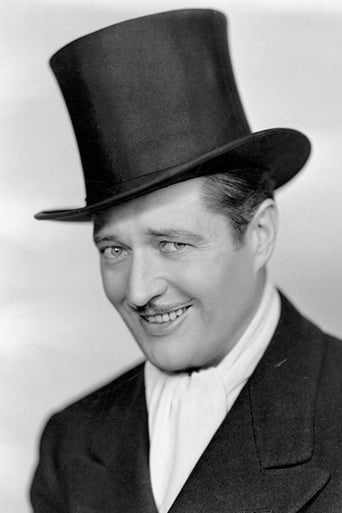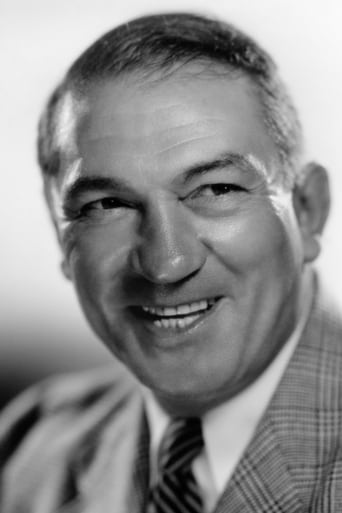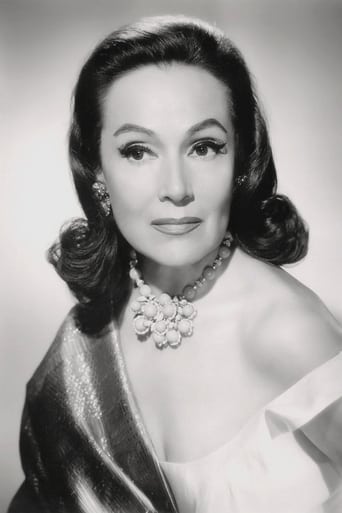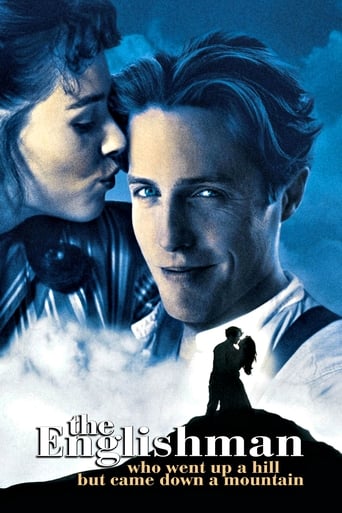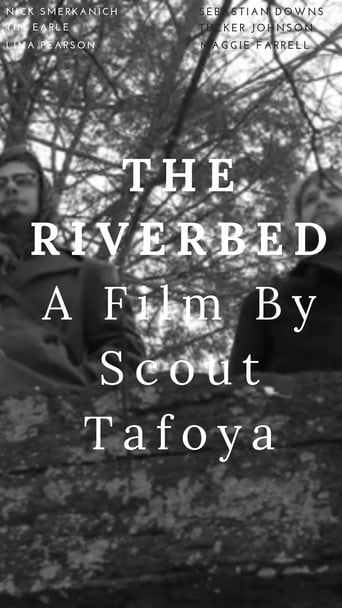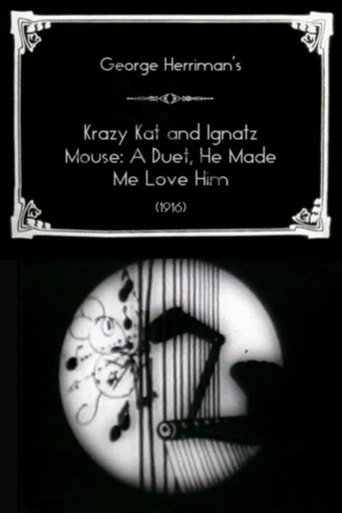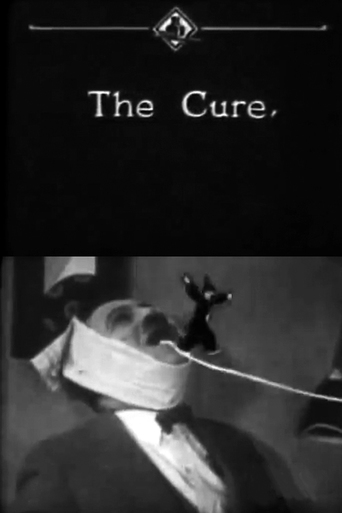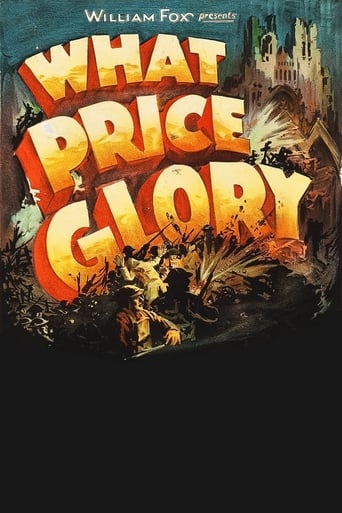
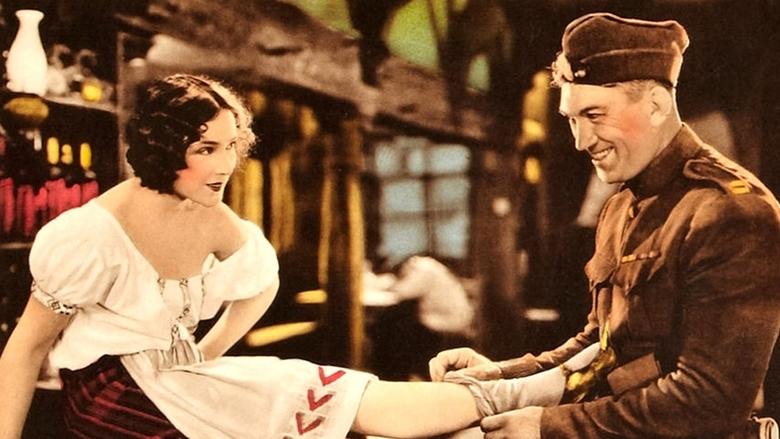
What Price Glory (1926)
U.S. Marine sergeants Quirt and Flagg are inveterate romantic rivals on peacetime assignments in China and the Philippines. In 1917, W.W. I brings them to France, where Flagg, now a captain, takes up with flirtatious Charmaine, inn-keeper's daughter. Of course, Quirt has to arrive and spoil his fun. But the harsh realities of war and the threat of a shotgun marriage give the two men a common cause...
Watch Trailer
Cast


Similar titles
Reviews
Save your money for something good and enjoyable
Excellent but underrated film
Absolutely the worst movie.
Absolutely Fantastic
Like "Wings" and "The Big Parade," "What Price Glory" was made while the events of World War I were still fresh in the memory of audiences. Directed by Raoul Walsh, the film is set against the background of war and relates the rivalry between two U.S. Marines, Sergeant Quirt, played by Edmund Lowe, and Sergeant Flagg, played by Victor McLaglen. The film opens in Peking, where the two men are Marine guards at the U.S. embassy and, when off duty, compete for the attentions of Shanghai Mabel. The action moves to the Philippines, where Quirt steals the affections of Flagg's Filipina girlfriend. In 1917 France, the two meet up for a third time; Flagg has been promoted to Captain, and Quirt is now a Top Sergeant. Echoing their past, when Quirt reappears, the animosity between the two rekindles. Despite Flagg's involvement with Charmaine de la Cognac, a French spitfire, well portrayed by Dolores del Rio, Quirt moves in on Flagg's girl once again. Like Shanghai Mabel and the Filipina, Charmaine has an eye for the handsome Quirt, and, when Flagg is sent off to battle, the pair consummate their mutual attraction. Written by Laurence Stallings and Maxwell Anderson, "What Price Glory" throws the romantic triangle into the chaos of war; the battle scenes are convincingly staged, and, at times, feel like newsreels. While troops advance into battle amidst exploding artillery shells, the muddy trench warfare and the harrowing gas attacks send a clear anti-war message. However, the quiet moments are equally powerful and often touching. A series of flashbacks visually depict what the soldiers left behind: homes, mothers, jobs, and wives; another series of shots show the dough-boys reading letters from home, the words stretched across the screen. When the action cuts to an underground aid station, a dark grim hell of wounded and dying is exposed. Victor McLaglen is excellent as Sergeant Flagg and holds the film together. Tall, rugged, and craggy, McLaglen is convincing as the marine leader, who is brave in battle, but falters on the romantic front. While co-star Edmund Lowe is also good in a less demanding role, he is overshadowed by McLaglen. Dolores del Rio is also fine, although at times she lapses into the overplayed mannerisms often associated with silent-film performances by those who denigrate them. Barry Norton, as a gentle private, whose mother is the center of his life, has some touching moments. Rare for a silent film, Dolores del Rio's character has a lovely musical theme, "Charmaine," composed by Erno Rapee, that was especially written for use when showing the film.While arguably a lesser achievement than "Wings," "The Big Parade," and "All Quiet on the Western Front," "What Price Glory" nevertheless is a major achievement among the early films that recreated World War I for home audiences. Generally fine performances, convincing battle scenes, and a memorable theme song make Raoul Walsh's anti-war epic another essential classic from the silent era.
Marine buddies Edmund Lowe (as Sergeant Quirt) and Victor McLaglen (as Captain Flagg) carouse through World War I, and eventually become rivals for the affections of sexy Dolores del Rio (as Charmaine de la Cognac). This successful stage comedy-drama became one of the biggest late-term "silent" hits, also making it to several top five lists and winning a "Best Picture" honor from Quigley Publications. The comedy hits a high note when Mr. McLaglen tells new recruits three things not tolerated are, "Running wild with these French dames, getting drunk, and fighting among yourselves." McLaglen's adept at all three, of course...Moments later, he dramatically notes, "There's something rotten about a world that's got to be wet down every thirty years with the blood of boys like those..." Director Raoul Walsh throws the film slightly off pace by increasing the comedy quotient, though he certainly must be admired for his celebration of the female "derriere" and the ability to get animals in camera range. The wild motor-scooter ride seems too slapstick. Like their characters in the original play, the co-stars used some mild vulgarities; at the time, lip readers were shocked. Of the principles, McLaglen received the best notices. Among the supporting actors, "mother's boy" Barry Norton (as Kenneth Lewisohn) was most singled out for praise; you should have no trouble determining why. Production values are excellent.******* What Price Glory (11/23/26) Raoul Walsh ~ Victor McLaglen, Edmund Lowe, Dolores del Rio, Barry Norton
What Price Glory was one of the great plays of the Roaring Twenties, a shuddering look back at the greatest war in history and people's determination not to go through that again. People actually took time away from their partying to go look at this one. It was one of the biggest hits that the Shubert organization ever produced, running 435 performances in the 1924-25 season on Broadway. And it was a popular choice for little theater companies to stage for the next 30 years or so. If you remember in the film It's A Wonderful World, James Stewart and Claudette Colbert find themselves in such a revival production at a company in the Hudson Valley.What Laurence Stallings and Maxwell Anderson wrote got to the silent big screen for Fox Films in 1926 and it was deservedly a box office hit. Unlike The Big Parade it's Broadway success brought a built in audience to the movie theaters. The male buddy film may well have originated with this film as Victor McLaglen and Edmund Lowe as Captain Flagg and Sergeant Quirt gave such powerful performances. Later on Warner Brothers by teaming James Cagney and Pat O'Brien teamed them in a variety of films and situations whereas McLaglen and Lowe only played variations of Flagg and Quirt when they weren't using those names. You can make a case for either McLaglen/Lowe or Cagney/O'Brien for inventing the genre.One thing that is important is that like The Virginian which novel and play set the standard for western characters, What Price Glory did so for the male buddy film. These were not stock characters then, this is the original.I'd be hard pressed to pick out whether The Big Parade or What Price Glory did the battle scenes best, capturing the horror of total war that the First World War was. In terms of plot I'd say What Price Glory has it over The Big Parade as a story. The two Marines McLaglen and Lowe are friendly rivals over women or liquor, but fierce fighting companions in combat. The object of their affection is Charmaine played by Dolores Del Rio, the comely innkeeper's daughter. Charmaine has her own song, one of the earliest written for a film of the same name that was a big seller in The Roaring Twenties. That also contributed mightily to the box office for What Price Glory.The First Marine Division was the first American troops to actually see combat in France. These two and their fellow Marines might well be part of the Belleau Wood operations where Marines were rushed into bolster French and British troops when the German offensive threatened to break through.What Price Glory holds up magnificently from the silent era, still as a reminder of the futility of war and the plucky comradeship that can develop from that shared experience.
Fox's answer to MGM's "The Big Parade," and I think it's a markedly superior movie, thanks to better pacing and the rousing direction of Raoul Walsh. He's in his element here: a big war movie with loads of comedy and romance, and three strong personalities at its center. McLaglen was born for this sort of stuff; Lowe wasn't, but he's a very convincing roistering-randy soldier. And Del Rio is so beautiful you don't much care what she does. The horrors of war are amply displayed, and the Hollywood hills doubling for the French countryside work just fine. But what made it such a hit, I guess, was the utterly winning frenemy relationship of Quirt and Flagg. They fight for dames, they hurl insults back and forth, they curse each other with all-too-lip-readable epithets, but you never doubt their loyalty and respect for each other. Maybe there's one skirmish too many--it gets a little repetitive-- but it's much faster-moving than "The Big Parade," and the soldier stereotypes commented on elsewhere don't hurt so much. Also, Leslie Fenton is excellent.


